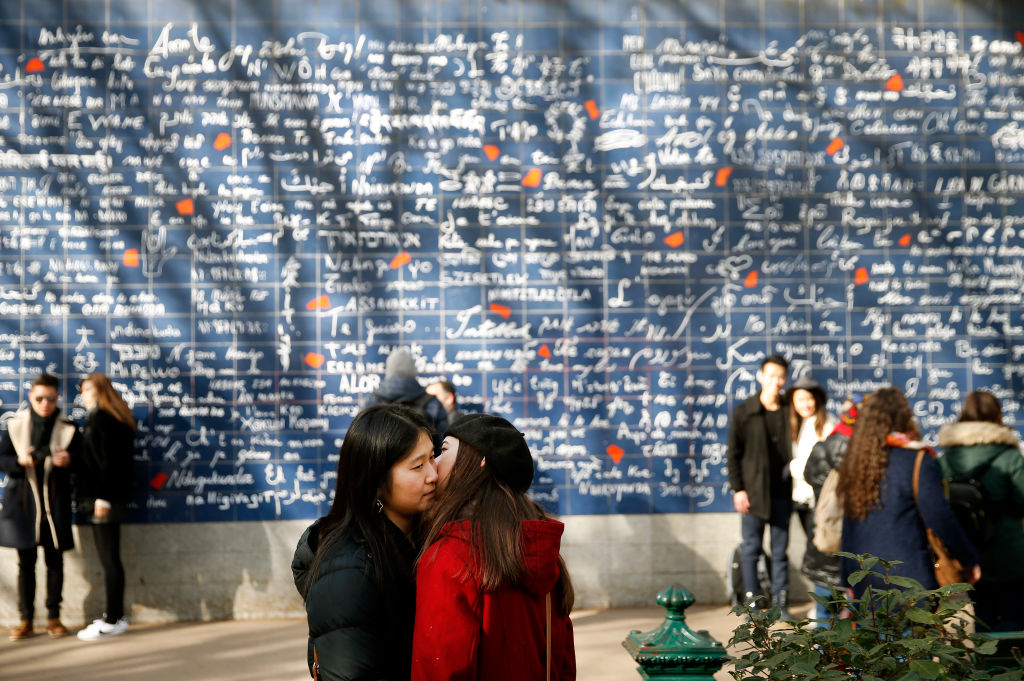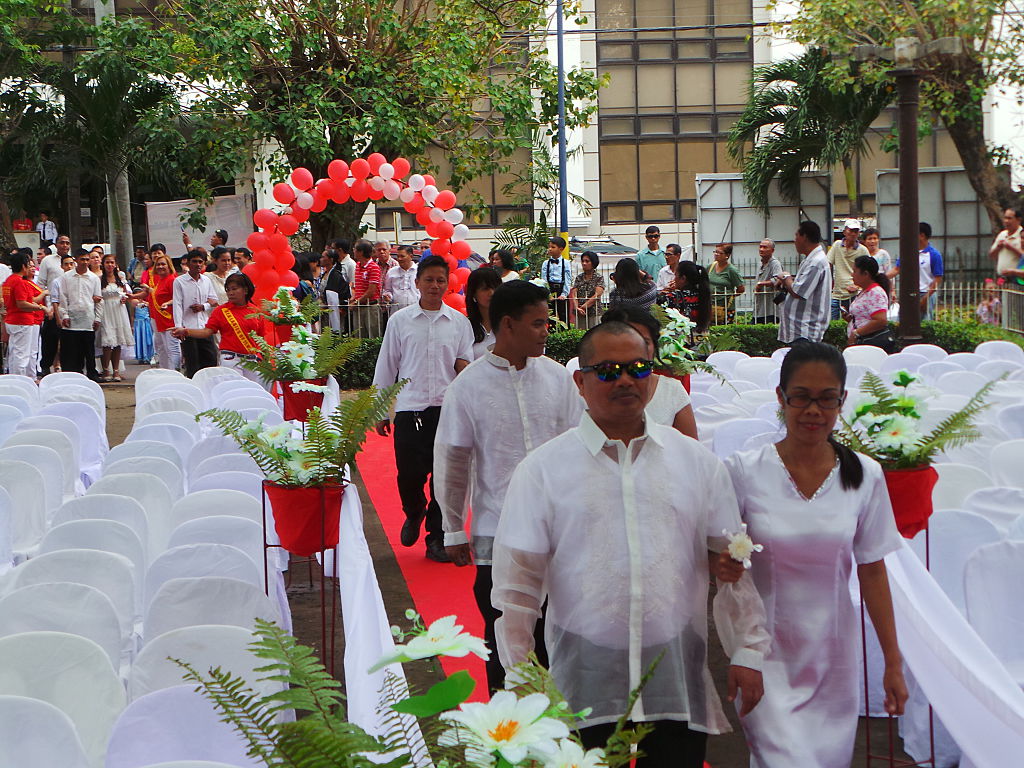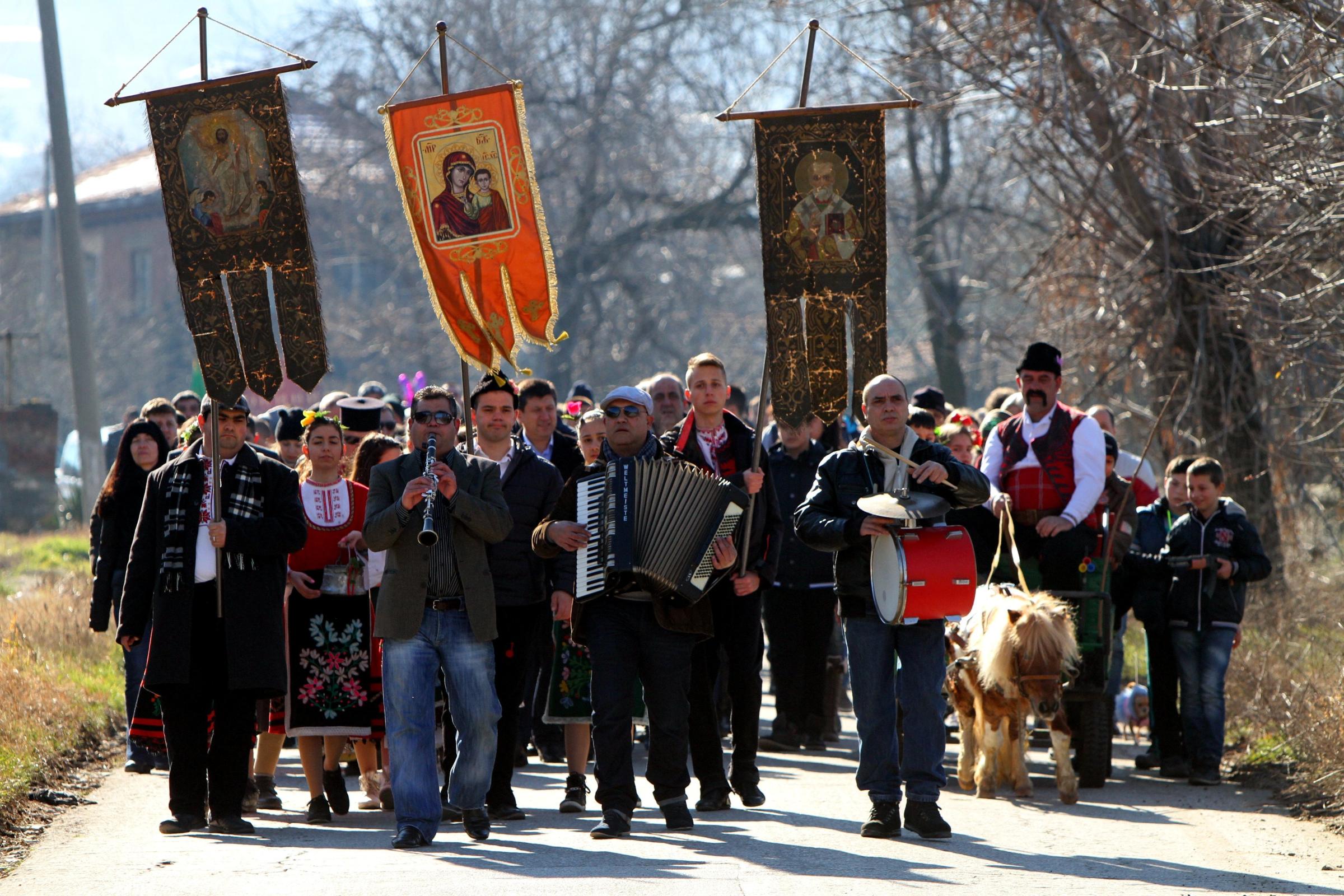
Like most other annual holidays, Valentine’s Day in the U.S. tends to follow a predictable script. Lovers might buy each other flowers and a card, or gorge on a fancy dinner.
From Paris to Dhaka, that script is followed in cities around the world. But there are still some places where people celebrate Valentine’s Day in weird and wonderful ways.
Wales
Wales celebrates its version of Valentine’s Day on Jan. 25. Known as Saint Dwynwen’s day, it commemorates the legend of the nation’s patron saint of love.
According to the BBC, it’s a fairly grizzly tale, featuring an arranged marriage gone wrong, a convent and a frozen lover. To celebrate Dwynwen, Welsh lovers traditionally exchange “love spoons” – ornate wooden utensils featuring symbols to express different sentiments.
The Philippines

In recent years, some Filipino couples have celebrated Valentine’s Day at state-supported mass wedding ceremonies.
This year, hundreds of couples will marry on Valentine’s Day under the supervision of Mayor Dino Reyes Chua of Noveleta, a town south of the Philippine capital Manila.
The region’s local government says it will pay for the cost of the wedding reception, bouquets of flowers and even wedding cakes for the couples — who are all set to return the favor by accepting Mayor Chua and other officials as their new godparents.
And at a nearby town, where another mayor is set to officiate the marriage of some 500 couples at a high school building on Thursday, the best-dressed pair will win a prize of 10,000 Philippine Pesos ($192) to go towards their honeymoon.
The local government says the ceremonies are a way to help cash-strapped young couples make their unions official in the eyes of God and the law.
El Salvador
In El Salvador, as in much of Latin America, Feb. 14 is the Day of Love and Friendship. The centerpiece is a game called Secret Friend. Salvadoran friends, families, classmates and coworkers write everyone’s name on a piece of paper and then each secretly pick one. Each person then gets a gift for another. When the time comes to hand the gifts out, everyone stands in a circle and takes it in turn to say one good quality about their “secret friend.” Everyone else then has to guess who the gift is for. It’s similar to the christmas game Secret Santa, except with a touch more affection.
Peru

Valentine’s Day coincides with Peru’s summer carnival season. Peruvians are often in a partying mood and sometimes they even have a national holiday. As in the U.S., Peruvian couples exchange flowers, but the most popular choice isn’t roses, but orchids. The flowers are abundant in the Andean nation and come in some 3,000 varieties.
South Africa
In South Africa, couples have traditionally celebrated Valentine’s by wearing their heart on their sleeve. Young people pin a piece of paper with the name of their partner or crush to their clothes, in a bid to get noticed (and hopefully reciprocated). The custom is supposedly a nod to the ancient Roman festival of Lupercalia, in which modern Valentine’s Day may have its roots.
Bulgaria

In Bulgaria, Valentine’s Day traditionally shared its spot in the calendar with the day of the patron saint of winemakers, St. Trifon Zarezan.
Early February is the time of year when grapevines first need their old branches trimmed to prepare them for the summer ahead.
Traditionally, men prune the grapevines, pouring wine onto the ground to improve the soil’s fertility. Each vineyard then selects the “wine king” deemed to have had the best harvest, who goes on to host a feast at his house with food and wine.
It’s not hard to see how the two holidays have come to be celebrated in unison by some Bulgarian lovers.
More Must-Reads from TIME
- Cybersecurity Experts Are Sounding the Alarm on DOGE
- Meet the 2025 Women of the Year
- The Harsh Truth About Disability Inclusion
- Why Do More Young Adults Have Cancer?
- Colman Domingo Leads With Radical Love
- How to Get Better at Doing Things Alone
- Michelle Zauner Stares Down the Darkness
Write to Billy Perrigo at billy.perrigo@time.com and Ciara Nugent at ciara.nugent@time.com